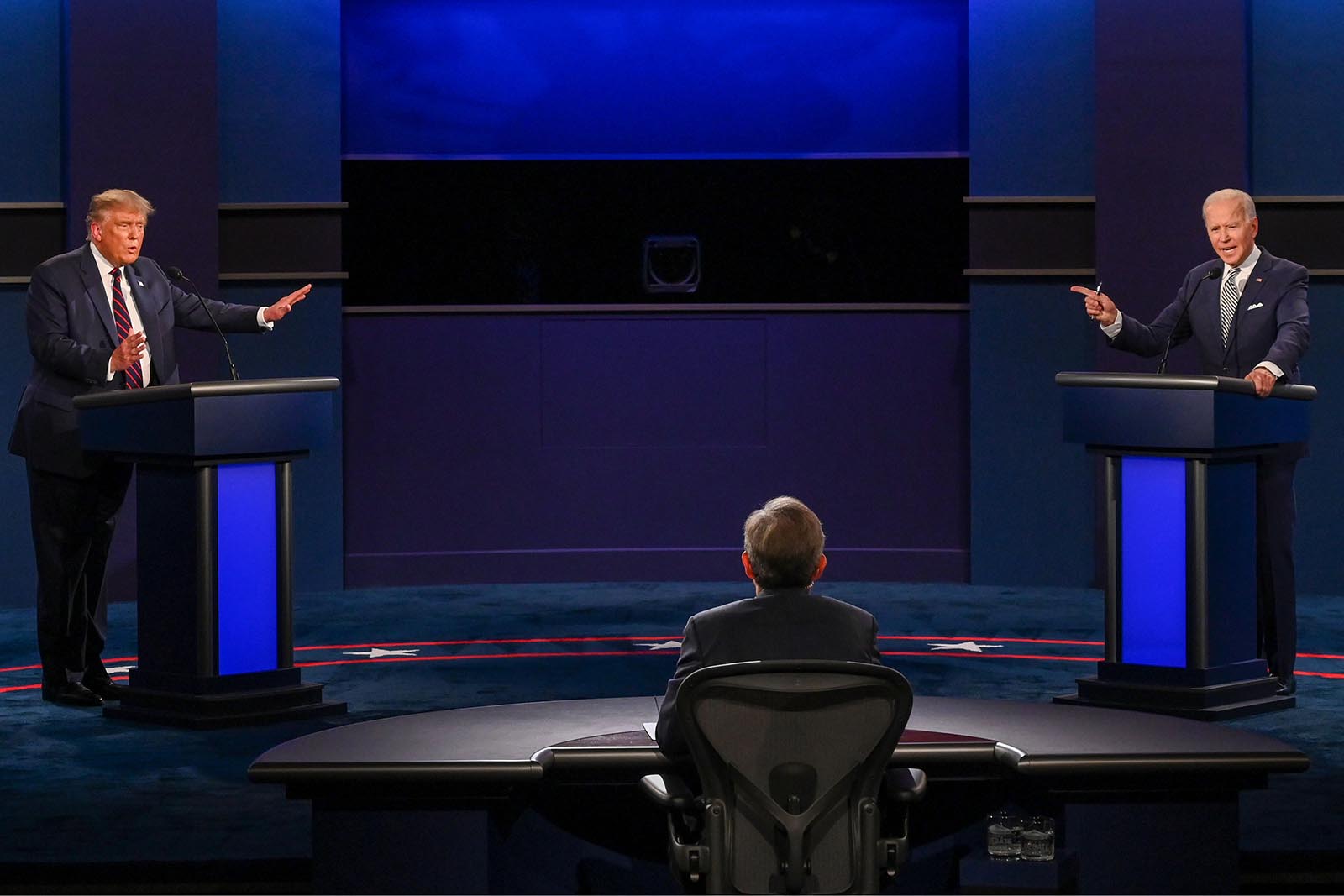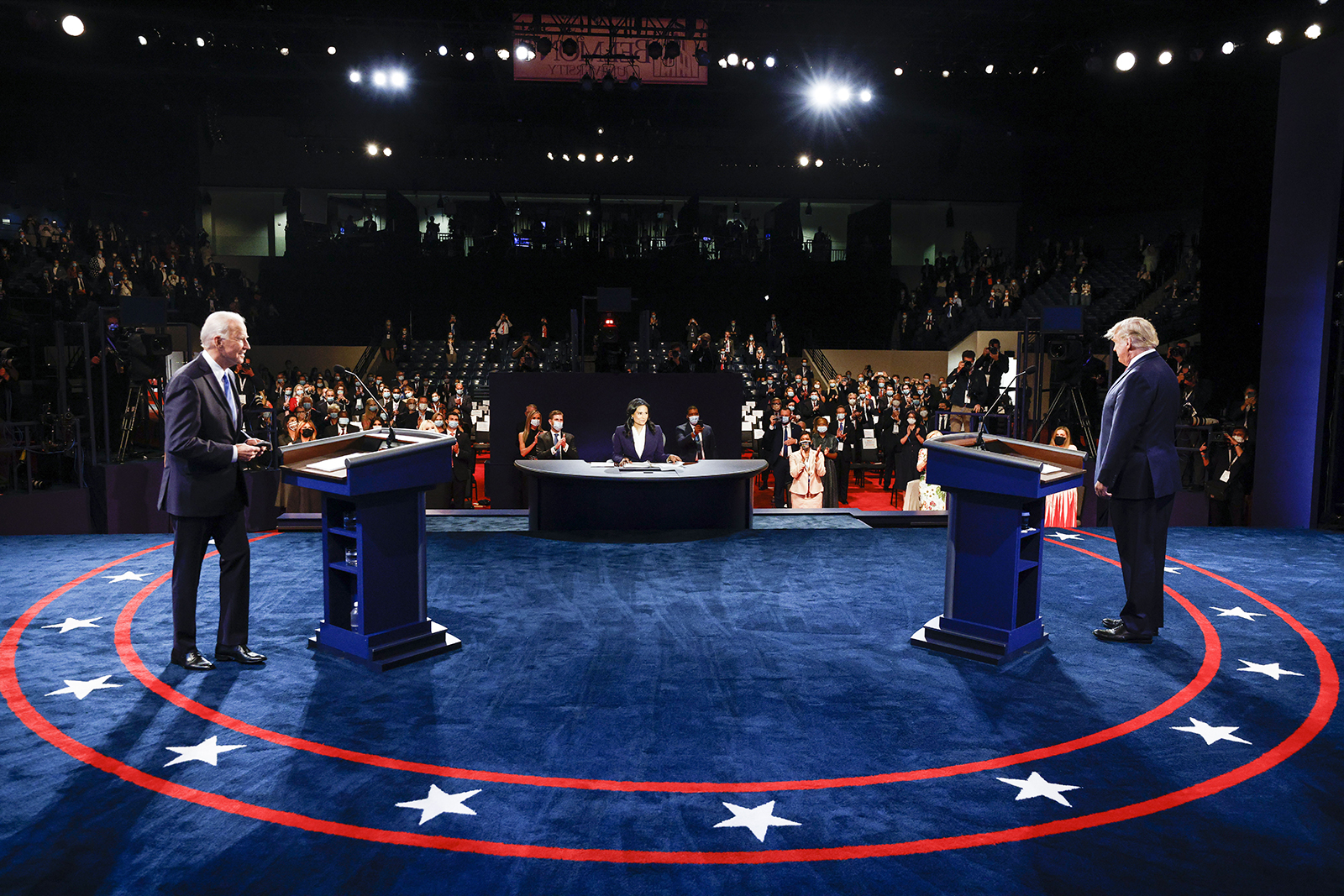Presidential Debate Schedule and Format: What Time Is Presidential Debate

The presidential debates are a crucial part of the election cycle, offering voters a platform to directly compare the candidates’ positions on key issues. These debates are highly anticipated events, drawing millions of viewers and influencing public opinion.
Debate Schedule and Locations, What time is presidential debate
The debate schedule Artikels the dates, times, and locations for each presidential debate. The Commission on Presidential Debates (CPD) is responsible for organizing and hosting these events.
- First Debate: [Date] at [Time] in [Location]. The first debate will focus on [topic].
- Second Debate: [Date] at [Time] in [Location]. The second debate will focus on [topic].
- Third Debate: [Date] at [Time] in [Location]. The third debate will focus on [topic].
Debate Format
The format of the debates includes the topics to be discussed, the time allotted for each segment, and the rules for audience participation. The CPD typically sets the format, ensuring a structured and fair discussion.
- Topics: The debates typically cover a wide range of issues, including the economy, healthcare, foreign policy, and social issues. The specific topics may vary from debate to debate.
- Time Allotment: Each candidate is given a set amount of time to respond to questions and make their case. The moderators, typically journalists, guide the discussion and ensure that both candidates have equal opportunities.
- Audience Participation: The debates are typically held in front of a live audience, who may be able to ask questions or provide feedback. However, the audience’s role is generally limited to ensure a focused and respectful discussion.
Significance of the Debates
The presidential debates are significant events in the election cycle, as they provide voters with valuable insights into the candidates’ policies, personalities, and leadership qualities. The debates can influence public opinion and shape the course of the election.
- Voter Education: The debates offer voters a platform to learn about the candidates’ positions on important issues. This information helps voters make informed decisions when casting their ballots.
- Candidate Performance: The debates allow voters to assess the candidates’ communication skills, their ability to handle pressure, and their overall demeanor. These factors can influence voter perceptions of the candidates’ suitability for office.
- Media Coverage: The debates receive extensive media coverage, amplifying the candidates’ messages and reaching a wide audience. This coverage can shape public discourse and influence voter attitudes.
Key Issues and Talking Points

The presidential debates are a crucial platform for candidates to articulate their positions on key issues and engage with the electorate. The debates provide voters with a direct glimpse into the candidates’ policy stances, communication styles, and overall leadership qualities. As such, the issues addressed in these debates often reflect the most pressing concerns of the American people and can significantly influence the outcome of the election.
Economy and Jobs
The state of the economy is always a central concern for voters, and the debates will likely feature discussions on issues such as inflation, unemployment, and economic growth. Candidates will need to articulate their plans for addressing these challenges and demonstrate their understanding of the economic concerns of ordinary Americans.
- Candidate A may focus on their record of economic growth and job creation, highlighting policies that they believe have fostered a strong economy. They might also propose tax cuts or deregulation as measures to stimulate further economic activity.
- Candidate B might emphasize the need for government intervention to address income inequality and ensure a more equitable distribution of wealth. They may advocate for policies such as increased investment in infrastructure, education, and healthcare, arguing that these investments will create jobs and boost the economy in the long term.
The candidates’ positions on these issues could significantly impact their electoral chances. Voters who prioritize economic stability and growth are likely to favor candidates who offer clear and convincing plans to address these concerns. On the other hand, voters who prioritize social justice and economic fairness may be more receptive to candidates who focus on policies aimed at addressing income inequality and creating a more equitable society.
Healthcare
Healthcare is another issue that consistently ranks high on the list of voter concerns. The debates will likely feature discussions on issues such as access to affordable healthcare, the role of government in healthcare, and the rising costs of healthcare.
- Candidate A might advocate for market-based solutions to healthcare, such as expanding health savings accounts or promoting competition among insurance providers. They may argue that these approaches will lead to lower costs and greater choice for consumers.
- Candidate B might emphasize the need for a universal healthcare system, arguing that it would provide affordable and accessible healthcare for all Americans. They may highlight the success of other countries with universal healthcare systems and point to the high costs and limited access to healthcare in the United States as evidence of the need for reform.
The candidates’ positions on healthcare are likely to be a key factor in determining their electoral success. Voters who prioritize affordability and access to healthcare are likely to favor candidates who support a universal healthcare system or other policies that aim to make healthcare more affordable and accessible. On the other hand, voters who value individual choice and market-based solutions may be more receptive to candidates who advocate for less government involvement in healthcare.
Climate Change
Climate change is a growing concern for voters, and the debates will likely feature discussions on issues such as the role of government in addressing climate change, the impact of climate change on the economy, and the need for action to mitigate climate change.
- Candidate A might emphasize the need for a balanced approach to climate change, arguing that the government should invest in clean energy technologies while also supporting traditional energy industries. They may highlight the economic benefits of clean energy and the need to ensure energy security.
- Candidate B might advocate for aggressive action to combat climate change, calling for significant reductions in greenhouse gas emissions and investments in renewable energy. They may argue that climate change poses a serious threat to the environment and the economy and that immediate action is necessary to address this threat.
The candidates’ positions on climate change are likely to be a key factor in determining their electoral success, particularly among younger voters and those who prioritize environmental protection. Voters who are concerned about climate change and its potential impact on the environment and the economy are likely to favor candidates who support aggressive action to address this issue. On the other hand, voters who are more skeptical of the science of climate change or who prioritize economic growth over environmental protection may be more receptive to candidates who advocate for a more balanced approach.
Social Issues
Social issues, such as abortion, gun control, and immigration, are often highly divisive and can significantly impact the outcome of elections. The debates will likely feature discussions on these issues, and the candidates’ positions will be scrutinized by voters.
- Candidate A might advocate for a more conservative approach to social issues, supporting restrictions on abortion access and opposing gun control measures. They may also emphasize the need for stronger border security and stricter immigration policies.
- Candidate B might advocate for a more liberal approach to social issues, supporting abortion rights and gun control measures. They may also support a pathway to citizenship for undocumented immigrants and advocate for policies that promote social justice and equality.
The candidates’ positions on social issues are likely to be a key factor in determining their electoral success, particularly among voters who hold strong views on these issues. Voters who prioritize traditional values and a more conservative approach to social issues are likely to favor candidates who share their views. On the other hand, voters who prioritize individual rights and a more liberal approach to social issues may be more receptive to candidates who support their positions.
What time is presidential debate – The presidential debate is a pivotal moment in American democracy, a chance for the nation to hear the candidates’ visions for the future. It’s a reminder of the legacy of figures like Robert F. Kennedy Jr , whose own family’s legacy in public service inspires us to engage in the democratic process.
Whether you agree with his views or not, Kennedy’s life reminds us of the power of individual voices in shaping the nation’s direction. So, mark your calendars for the presidential debate and be ready to engage in this vital dialogue that will shape our future.
While we ponder the time of the presidential debate, let’s remember that life’s events unfold with a similar unpredictability. Just as a tropical storm can morph into a hurricane, tropical storm debby hurricane , so too can our plans shift unexpectedly.
Yet, with each change, we have the opportunity to adapt and grow, just like a sturdy tree that bends with the wind. So, while we await the debate, let us also embrace the unknown with courage and resilience.
